Dunes de Merzouga - Morocco
- Food' by Lise Timmer
- Sep 7, 2021
- 5 min read
Merzouga is one of the regions among the most Saharan of Morocco. With its sand changing color, its fossils, its widespread surfaces flooded with light, beautiful dunes and nomadic camps near wells where caravans have passed for centuries, you can imagine this is a place where you can completely unwind.

Head east to Ouarzazate, south of the Atlas, where the real desert begins ...
When I was asked to go hiking in the desert for 6 days, I reacted with some reluctance. I had read about it, especially the vague stories and how good it was for you to 'find yourself'.
I couldn't imagine or just didn't want to know.
Still, it kept haunting me and after some research on the internet and some discussions with friends I came back to it: I went for it!
The journey started well...
With about 6 people we met at the airport. As it always happens when you fly, you end up in the duty-free where you let yourself be tempted to buy that one thing (in the spirit of 'always handy for travel').
With a group it sometimes takes a little longer and so we missed our flight to Morocco.
A few hours later and some of us a bit stressed, we finally arrived at the airport where our guide was patiently waiting for us.
A few more hours later we met the cook and two camel drivers who came to load our luggage: we left with jeeps to the beginning of the desert where our journey would start. I thought it was really exciting and the road leading there already gave us an idea of what we were going to see in the following days.
The jeep was unloaded and the camels loaded. What a huge beast and what a weight they can carry. They also make noise. In the deafening silence of the desert, every sound is twice as loud!
The first night we spent in our little red tent in the small dunes of Ikarian. It was like lying in your tent at the campsite, but with earplugs in. The ringing in my ears kept me awake and I woke up dead tired.
And oh, how cold I was. When morning came, I was in a sleeping bag that I had pulled up to my ears, wearing all the sweaters I had brought, two pairs of sweatpants, two pairs of socks and a towel over my head. During the day you would wonder how on earth you could have been so cold because then you would melt away.
There was no sleeping in. At sunrise we were awakened by the guide but the days after we all woke up on our own; we were tired of the day and were in bed so early in the evening that you made long nights. Besides that, the night comes all at once, as if someone turned off the light.
Sometimes I was still in the general tent reading a book or we played cards, but we soon gave up. We were too tired.
We also woke up by the smell of fresh bread. You unzipped your tent and there he was again, the cook on his haunches, busy poking at the ashes of the fire with a stick. Next to him was a plastic container with the dough. Each time he took a piece out, flattened it between his hands, and made it wider by twisting it around like a lasso between both hands. And hop, briefly on both sides of the ashes and in no time the bread was baked. This scene unfolded in front of me every morning and evening and strangely enough I found it very soothing to watch.
We ate it with homemade jam, honey or cheese, a fresh fruit and a cup of milk, black tea, mint tea or instant coffee. How easy can it be. And what else do you need?
And by the way, what do you mean? Charging 35 euros for a Continental breakfast...
The real serious walking started the second day. There wasn't a day that I didn't climb high dunes or rolled down and there seemed to be no end to it. At each time I was dazzled by dune landscapes of gold, ocher, red and white hues and walked with beautiful views over the entire region and could see the border between Morocco and Algeria. With the wind at my back, the sweltering sun on my head, my face in the wind or brave a small sandstorm, I walked for hours past deserted villages and small oases.
We took a break every 3 hours to rest, have a drink or a picnic that consisted of various cooked salads with tuna or vegetable ratatouille, boiled cheese, seasonal fruits, dates, almonds and mint tea.
Around 5 o'clock we stopped, set up the tents, washed ourselves (with wet washcloths from a package or with a small towel and some water from a large water bag dangling from a camel) and sat on mats in front of the tent where the cook prepared our food.
There were wonderful smells coming from that tent, but he was also often squatting outside the tent on a fire, stirring a large pan of Moroccan soup or making a tagine or couscous. We also drank water or herbal tea. You didn't get alcohol and there wasn't any! And to be honest, I didn't miss that either.
For dessert, pancakes and apple fritters were baked or you just took a fruitsalad or an orange, some dates or a rice pudding.
Leaving the dunes of Merzouga, we entered another landscape: a stony black plateau mixed with grains of golden sand. The site is austere, with black, white and gold colors. At the end of the day, the sun beautifully revives the surroundings.
After a few days of walking and seeing so much (even though you only see sand) I was very tired but satisfied of what I had experienced.
The return to civilization was slow and gradual. Little by little, the landscape was again filled with signs of everyday life. I also had a bit of range again on my mobile phone and could take a decent shower somewhere and sit on a chair at the table.
It is definitely a beautiful experience and yes, after 2 days of rehab your mind will calm down. But how long did that feeling linger.. as soon as I got back I tried to hold on to it and bring back those moments of deafening silence, that smell of bread what I got used to so quickly, the only necessary conversations you have with the others (how nice is that not to be immediately judged as boring or quiet or weird) and which everyone can agree with, but man is a creature of habit. Before you know it, you will be swallowed up by normal life again, but yes, after such an experience you start to wonder about what a normal life is.
“What draws us into the desert is the search for something intimate in the remote.”
- Edward Abbey




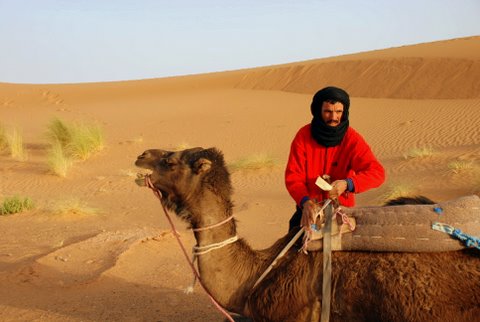

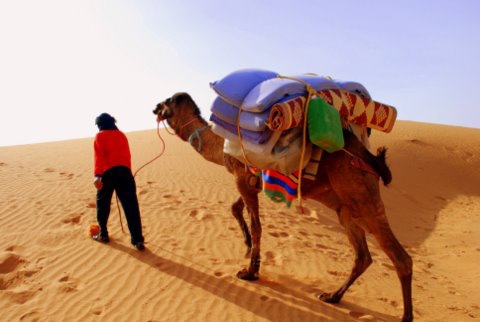

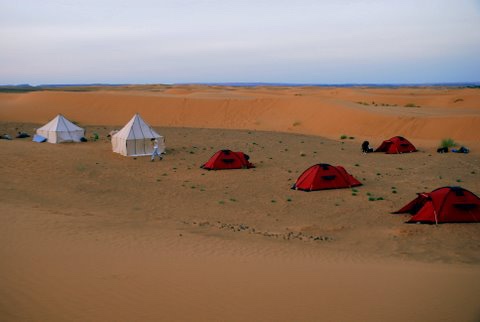

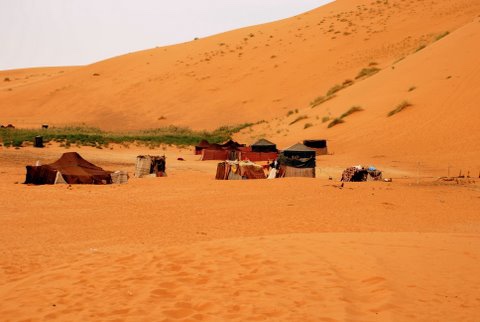

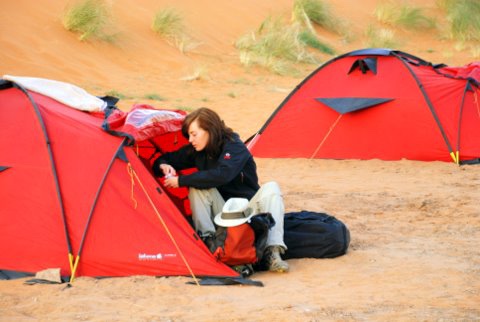

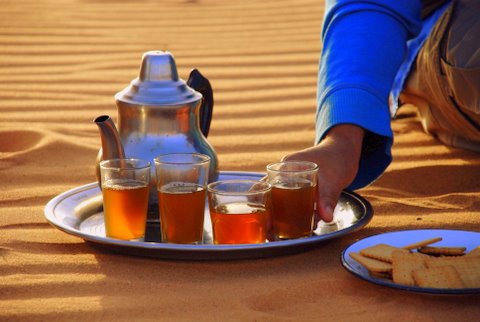



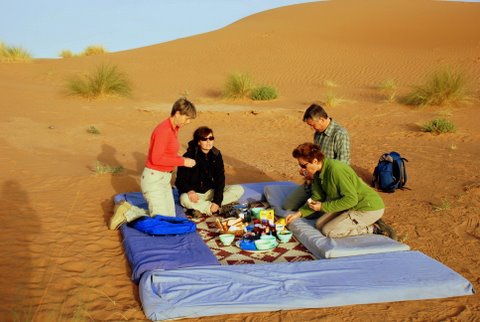



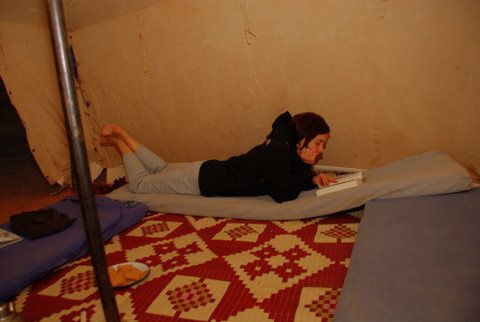

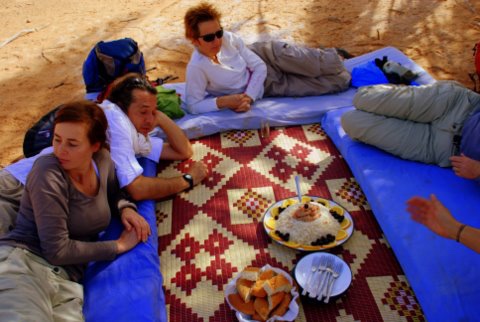




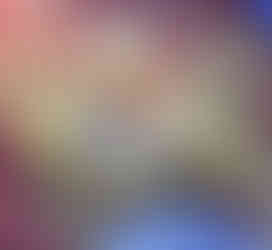


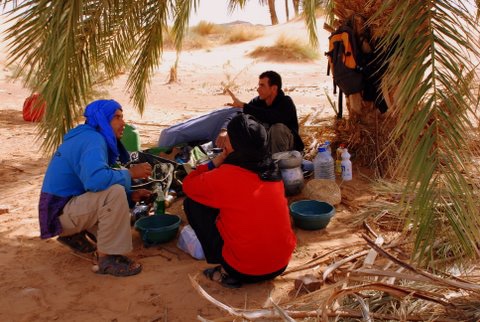

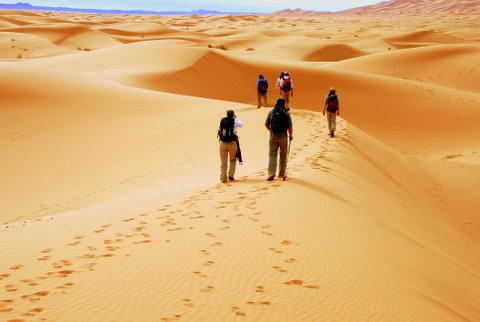
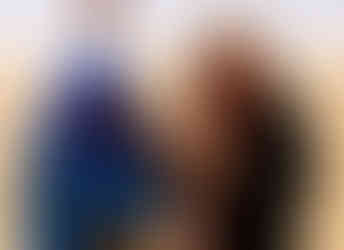

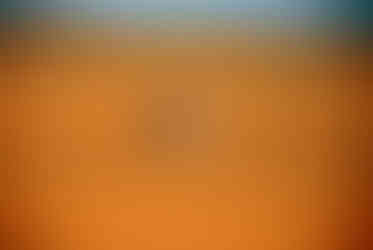


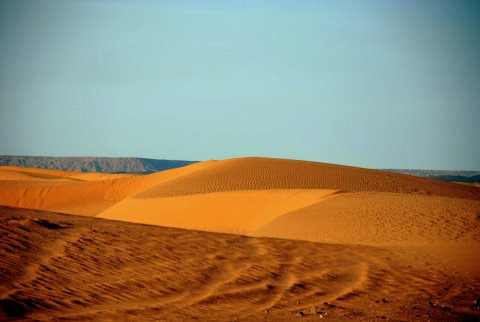

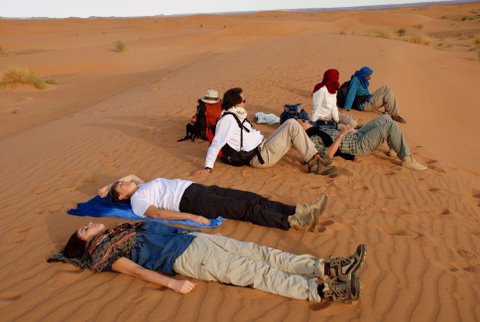

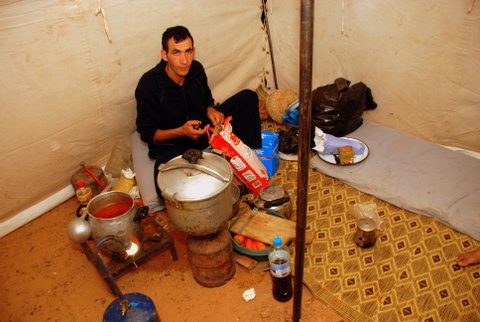
Comments